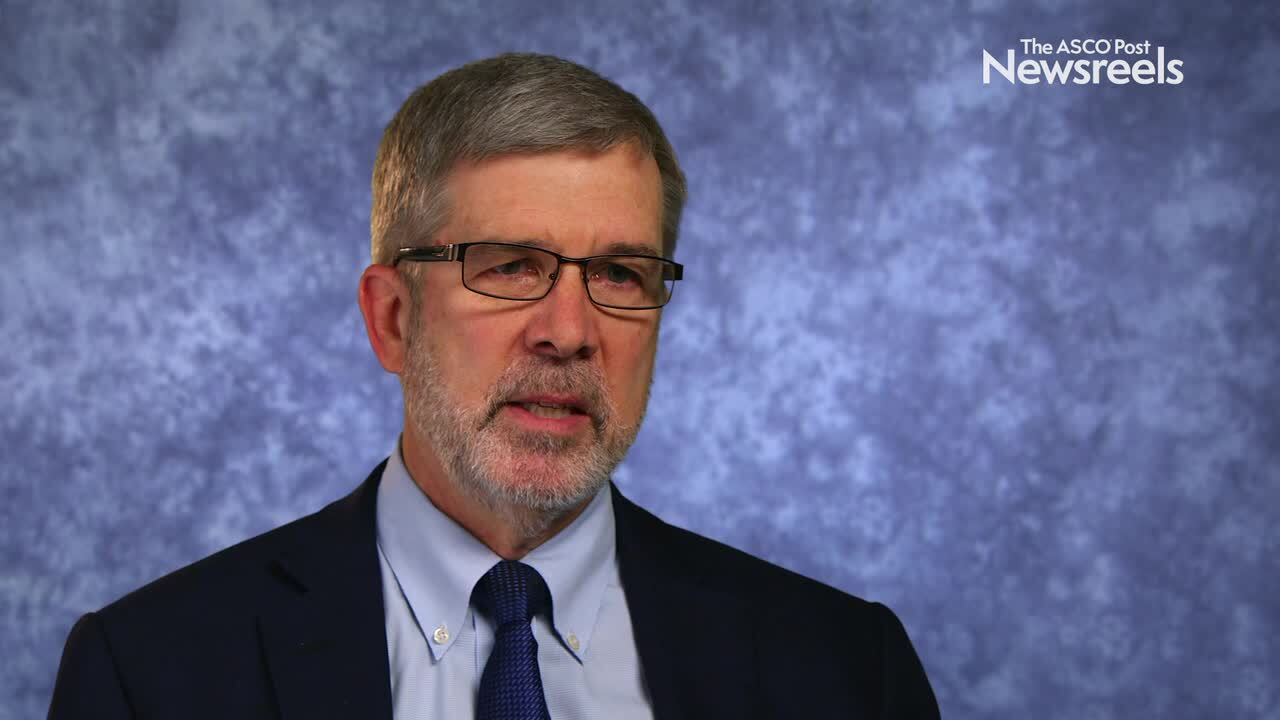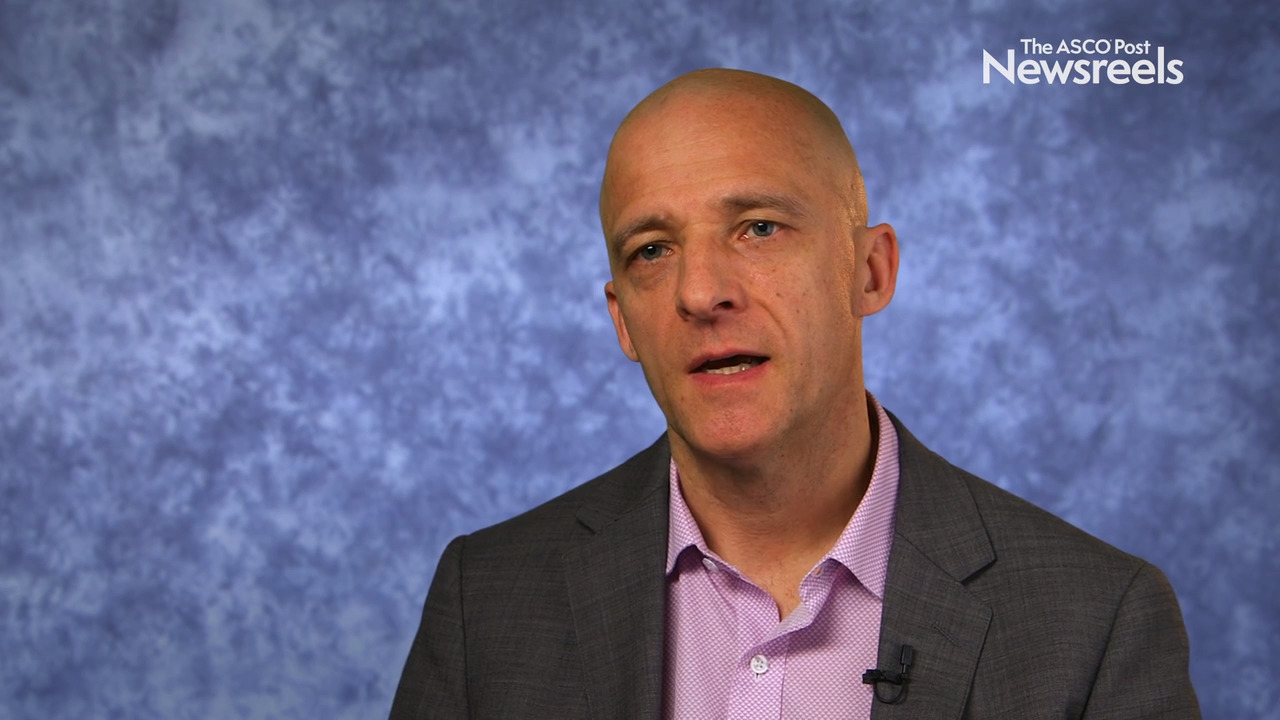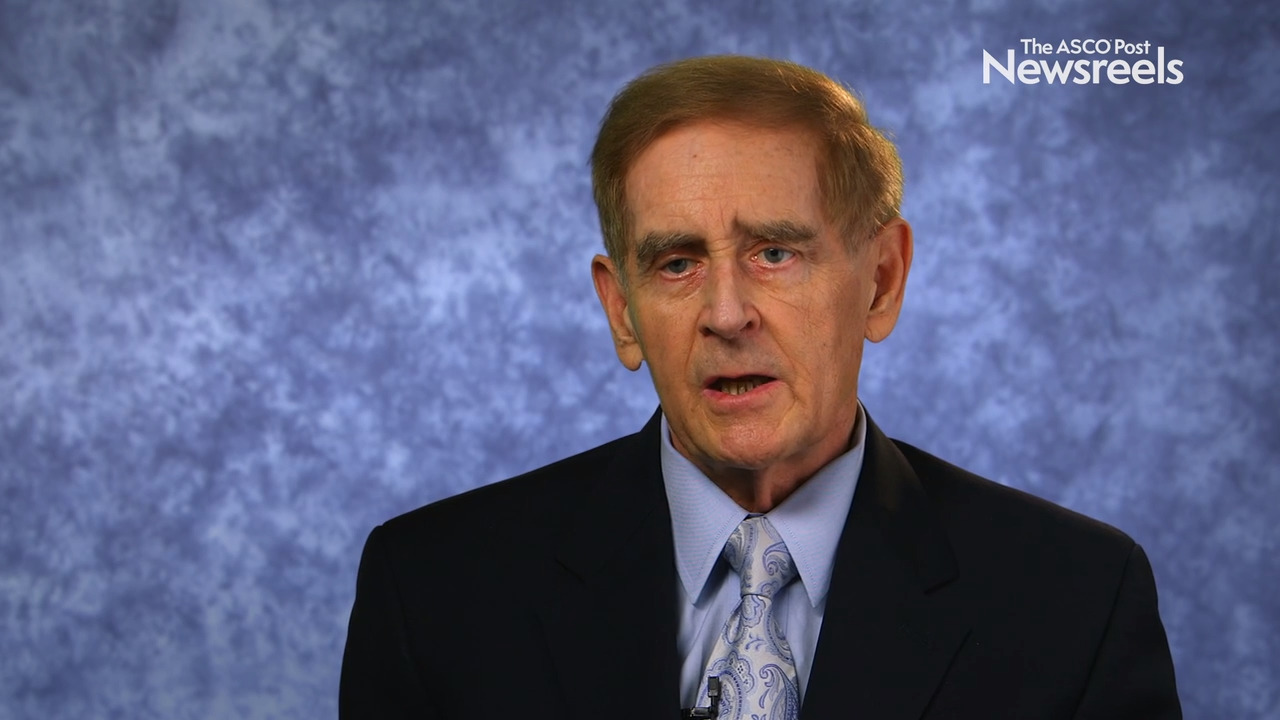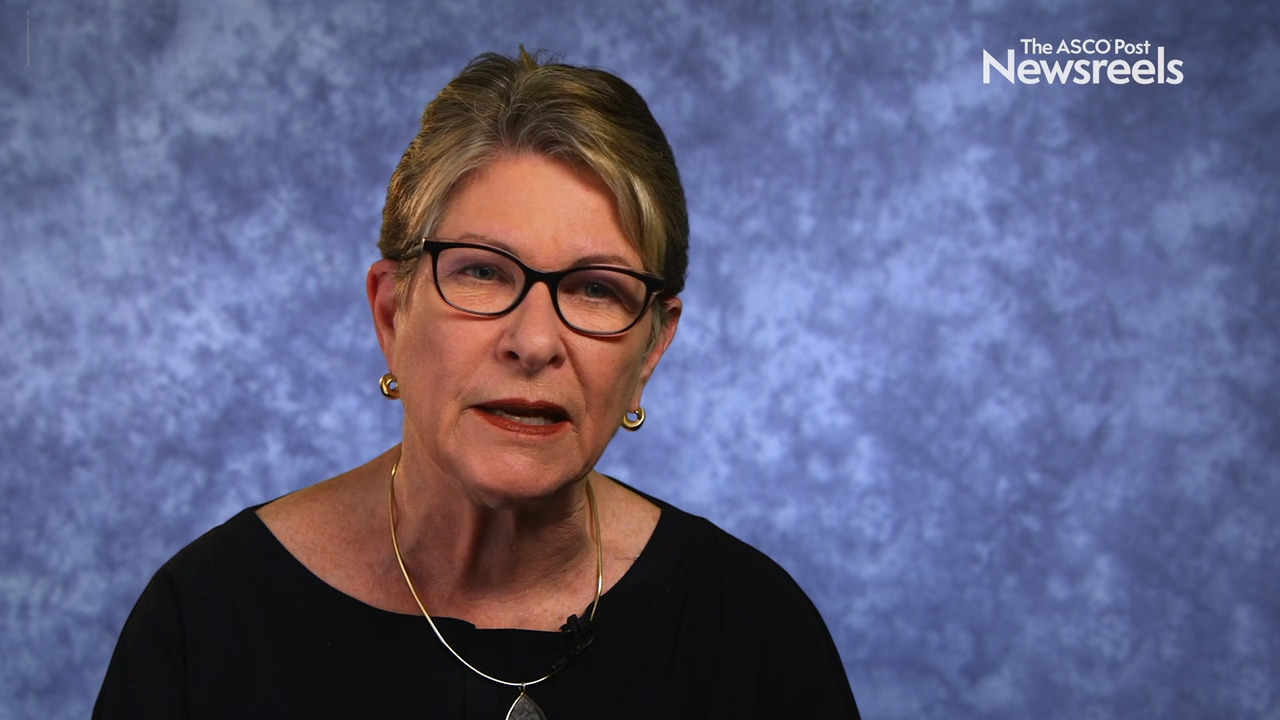Neil P. Shah, MD, PhD, on CML: NCCN Guidelines Updates on Discontinuing Tyrosine Kinase Inhibitor Therapy
NCCN Annual Conference 2019
Neil P. Shah, MD, PhD, of the UCSF Helen Diller Family Comprehensive Cancer Center, discusses the feasibility of discontinuing tyrosine kinase inhibitor therapy in select patients with chronic phase chronic myeloid leukemia outside of clinical trials.
Melinda L. Telli, MD, of the Stanford Cancer Institute, discusses the various systemic therapies for patients with early-stage hormone receptor–positive, HER2-negative disease.
James L. Mohler, MD, of the Roswell Park Comprehensive Cancer Center, discusses updated recommendations in prostate cancer: more specificity for family history and genomic sequencing, as well as the evolving uses of androgen-deprivation therapy.
Eric Jonasch, MD, of The University of Texas MD Anderson Cancer Center, discusses major findings over the past 12 months in kidney cancer, including combination immunotherapies and trends in surgical oncology.
Gary H. Lyman, MD, MPH, of the Fred Hutchinson Cancer Research Center/Seattle Cancer Care Alliance, discusses current strategies for the use of biosimilars to treat cancer-induced anemia and neutropenia, and the need to provide evidence for the efficacy of these agents to allay any concerns about their use.
Margaret A. Tempero, MD, of the UCSF Helen Diller Family Comprehensive Cancer Center, discusses new adjuvant therapy options for patients with pancreatic cancer, and germline testing, including testing for microsatellite instability/mismatch repair genes as well as molecular analysis of all tumors.





